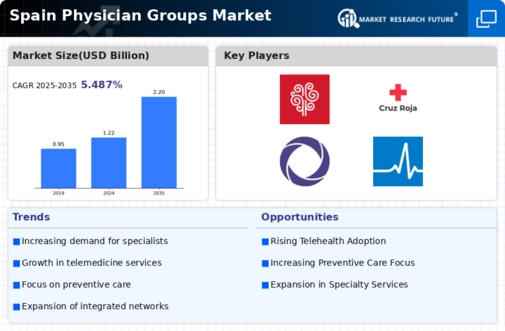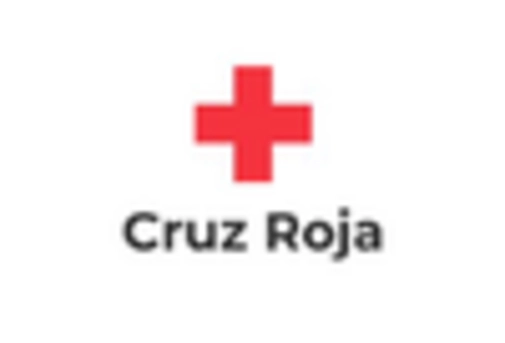The competitive dynamics within the Spain physician groups market are characterized by a blend of innovation, strategic partnerships, and regional expansion. Key players such as Quirónsalud (ES), Sanitas (ES), and Grupo Hospitalario HLA (ES) are at the forefront, each adopting distinct operational focuses that shape the market landscape. Quirónsalud (ES) emphasizes digital transformation, integrating advanced technologies into patient care, while Sanitas (ES) has been actively pursuing partnerships to enhance service delivery. Grupo Hospitalario HLA (ES) appears to be concentrating on regional expansion, aiming to increase its footprint across Spain, which collectively influences the competitive environment by fostering a culture of innovation and responsiveness to patient needs.
The business tactics employed by these companies reflect a moderately fragmented market structure, where localized strategies and supply chain optimization play crucial roles. Companies are increasingly localizing their services to cater to regional demands, which enhances their competitive edge. The collective influence of these key players suggests a market that is not only competitive but also dynamic, with each entity striving to carve out a niche through tailored offerings and strategic initiatives.
In December 2025, Quirónsalud (ES) announced a partnership with a leading telemedicine provider to enhance its digital health services. This strategic move is likely to bolster its position in the market by providing patients with more accessible healthcare options, thereby aligning with the growing trend towards digitalization in healthcare. The integration of telemedicine is expected to improve patient engagement and satisfaction, which are critical in today’s healthcare environment.
In November 2025, Sanitas (ES) launched a new initiative aimed at improving mental health services across its network. This initiative, which includes the introduction of specialized mental health clinics, underscores the company's commitment to addressing the evolving healthcare needs of the population. By focusing on mental health, Sanitas (ES) not only diversifies its service offerings but also positions itself as a leader in a critical area of healthcare that has gained prominence in recent years.
In October 2025, Grupo Hospitalario HLA (ES) expanded its operations by acquiring a regional hospital chain, thereby significantly increasing its market share. This acquisition is indicative of a broader trend towards consolidation within the market, as companies seek to enhance their operational capabilities and service offerings. The strategic importance of this move lies in its potential to create synergies that improve efficiency and patient care, ultimately leading to a stronger competitive position.
As of January 2026, the most current trends defining competition in the Spain physician groups market include a pronounced shift towards digitalization, sustainability, and the integration of artificial intelligence (AI) in healthcare delivery. Strategic alliances are increasingly shaping the landscape, enabling companies to leverage shared resources and expertise. Looking ahead, competitive differentiation is likely to evolve from traditional price-based competition to a focus on innovation, technology, and supply chain reliability. This shift suggests that companies that prioritize these elements will be better positioned to thrive in an increasingly complex and competitive environment.














